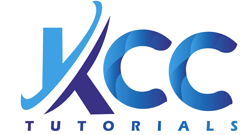
CMA Foundation Exam Strategy – Tips and Tricks
How to clear CMA Foundation in First Attempt? – Important Guidelines
CMA Foundation June 2025 exam is a crucial step in your journey toward becoming a Cost and Management Accountant. Success in this exam requires strategic preparation, time management, and a well-structured approach to answering questions. This guide provides essential tips to help you navigate the exam effectively, ensuring clarity, accuracy, and a strong presentation. By following these guidelines, you can optimize your performance and increase your chances of success.
Before You Start Writing
- Skim Through the Question Paper
- Spend no more than five minutes reviewing the paper.
- Identify the questions you are most confident in answering first.
- You do not need to finalize all six questions at this stage.
- Answer Strategy
- Begin with the easiest question to build confidence.
- Answer the compulsory question—skipping it will cap your score at 80%.
- Prioritize answering fewer questions fully and correctly rather than attempting more with incomplete responses.
- Time Management
- Allocate time proportionally based on the marks for each question.
- Deduct time for paper scanning, planning, and short breaks.
- Ideally, 1.5 minutes per mark should be allotted.
- The compulsory question might take up to an hour, so compensate time from easier questions.
- Reading Questions Carefully
- Read each question thoroughly before answering.
- In numerical subjects, reread complex questions 3–4 times to avoid errors.
Answering Strategy
For Numerical Questions
- Use the left-hand page for workings, assumptions, and notes—they must be clear and detailed.
- Clearly state assumptions even if they seem obvious.
- Indicate currency symbols (₹, $, etc.) in Costing and Accountancy answers.
- Maintain columnar clarity in Accountancy—draw double lines for key tables.
- Provide narrations for journal entries where applicable.
- Avoid overwriting; if a correction is necessary, neatly strike out the mistake.
- If the Balance Sheet doesn’t tally, cross-check entries logically instead of forcing incorrect totals.
- Do not attempt to mislead the examiner—examiners are highly experienced, and any deception could lead to severe penalties.
- Use control figures to verify accuracy, such as in Variance Analysis.
- Apply correct rounding-off rules: If the digit after the decimal is 5 or above, round up.
For Theory Questions
- Write precisely and to the point—examiners scan papers quickly.
- Use bullet points instead of long paragraphs to improve readability.
- Number your points numerically (1, 2, 3) instead of alphabetically (a, b, c).
- Highlight key terms (bold or underline) to attract the examiner’s attention.
- If the question asks to “describe” or “discuss”, provide structured paragraphs with headings.
- Use comparative tables when answering questions that compare concepts.
- Provide examples and illustrations wherever possible.
- Avoid overly lengthy explanations—be concise to retain the examiner’s attention.
- If you forget an answer, leave space and return to it later.
For Law and Economics Subjects
- Quote sections and case laws only if you are certain—incorrect citations may attract penalties.
- In statistics, ensure formulas and calculations are accurate.
- Final-level students should emphasize practical applications, industry examples, and critical analysis.
General Examination Tips
- Enter the examination hall with confidence and a positive mindset.
- Stay calm and composed—panic will only worsen the situation.
- Focus on the present task instead of worrying about the outcome.
- Take deep breaths before answering each question—extra oxygen enhances brain function.
- Never leave the exam halfway, even if you feel unprepared. Unexpected success is possible with effort.
- Avoid personal messages to the examiner; they won’t help but may harm your impression.
- Reserve 5–10 minutes at the end to review and correct mistakes.
- Inform your faculty about your results and seek guidance for future exams.
By following these structured strategies, you can significantly enhance your exam performance. Stay disciplined, stay focused, and give your best!


